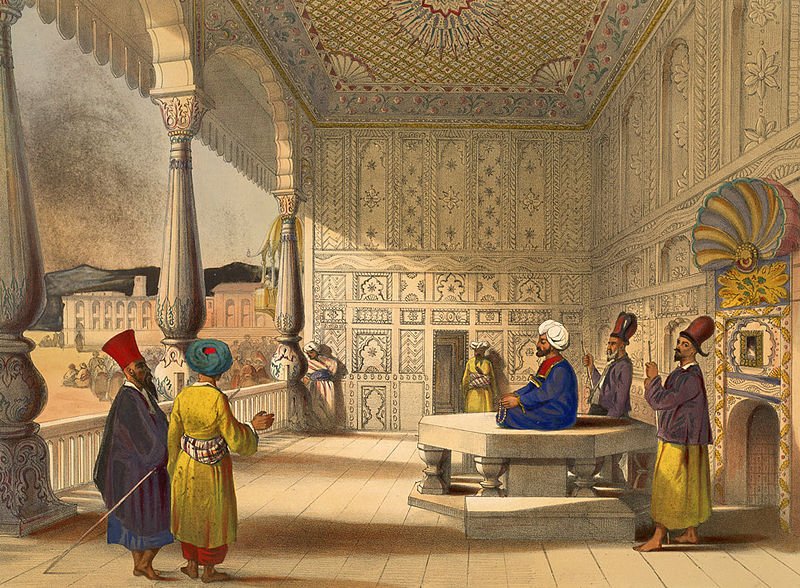
By R. I. Baloch
- Gammar khan, father of Imran Baloch a missing Baloch youth passed away in agony Tootak village, of Khuzdar district after waiting for over ten years for his beloved son who was forcibly abducted by Pakistani security agencies in 2010.
- Sajid Hussain a Baloch journalist and Chief Editor of Balochistan Times suddenly vanished without leaving a trace in Sweden. Balochistan Times alleged the role of Pakistan’s notorious spy agency ISI behind his disappearance. Till date, his whereabouts are not known.
- Armed male Frontier Corps personnel whisked away four women — 52 years old Sakina Qadir Bakhsh from Harunay Dann, 47 years old Sayad Bibi Ahmad from Mashi, 35 years old Hamida Mir Dilbod and 52 years old Nazal Mir Asadullah from Zilag village from Awaran a district in south Balochistan province of Pakistan. They were said to be armed and branded as ‘facilitators of terrorists’ before being shifted to the Khuzdar Jail. Two of them were reportedly also tortured in the Khuzdar jail.

It is not at all unusual to hear about the disappearance of political activists, students, journalists, human rights defenders and Shi’a Muslims, particularly in Sindh and Balochistan provinces.
According to the Human Rights Council of Balochistan (HRCB) and Baloch Human Rights Organization (BHRO) – in several cases, lone women are picked up from their homes to mount pressure on their male family members and relatives.
Crackdowns, sudden raids, abduction and forced disappearance are nothing alarming and a routine exercise for the security agencies, including the Pakistan Army, Frontier Corps, Military Intelligence (Pakistan) and the much-touted Inter-Services Intelligence. The modus operandi in many cases is to raid the homes when the men are not around and take out frustration against the women. In this manner, the Pakistani security force and ISI personnel have abducted and tortured men and women and burnt their homes over the past two decades.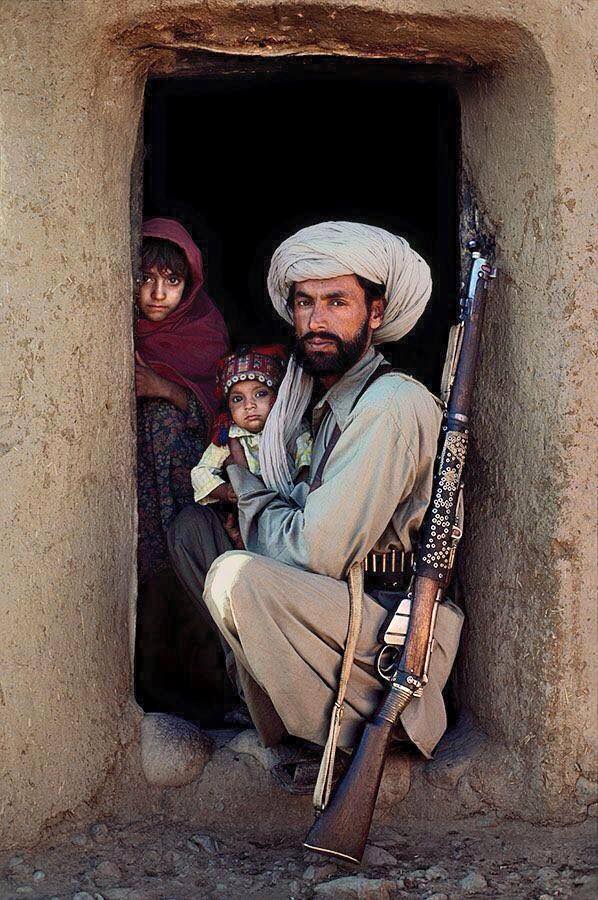
In a large number of cases, mass graves containing 10 to 150 bodies have been found each in different parts of Balochistan. Caught in the deadly crossfire between the military and insurgents many families have left their native villages to escape continuous raids by ISI and the security forces.
Balochistan today is — an ammunition dump waiting to explode any moment. If there is a hell – anywhere in the world, Balochistan is the place to find it.
The Human Rights Commission of Pakistan estimates that some 47,000 Baloch and 35,000 Pashtuns are ‘missing’. But nobody knows the exact count of people – killed or disappeared.
Balochistan’s history is full of endless brutalities, massacres, and bloodshed. Since its accession, Balochistan has been one of the most neglected, exploited, and ignored places in the world which have never seen any peace or development.
Balochistan’s biggest tragedy is that it has never been easy to unite the 5-7 million Balochi tribes in living in parts of Pakistan, Iran and Afghanistan under a common flag or leader. The fearless and gutsy Baloch tribes have always been fighting the Persians, Arabs, Turks, Tatars and British invaders and among themselves at all times.
It has never been easy — almost next to impossible to tame the proud and gallant Baloch tribes against their will. This has been one of the reasons why no outsider has been able to conquer, dominate or dictate terms. Balochistan’s geopolitical and tactical advantage is its location in the triangle between Pakistan, Iran and Afghanistan. On one side is the oil-rich Persian Gulf and a 470-mile long coastline along the Arabian Sea. This is one of the main reasons why British and Pakistani administrators have kept Baluchistan – educationally, economically and politically backward and isolated but exploited its material wealth.
The British tried every trick of the trade to tame the Baloch for nearly 40 years but failed. So they changed their strategy and signed a Treaty of Kallat (reaffirmed in 1876) to position British troops in Quetta and other strategic points – for a price (subsidy) which the Baloch leaders could not refuse. As per the Treaty, the British Government recognized the Sirdars and khan and offered to defend them from external threats and take strategic defence, external affairs and communications decisions on their behalf. To make all this, seem – to be a favourable decision, the British offered to pay a ‘subsidy’ of Rs. 50,000 to the Khan. It was raised to 1 lakh in 1876. Soon a new British cantonment came up at Quetta, and by 1879 the administration was taken over on behalf of the Khan of Kallat.
In 1947 Balochistan did not wish to be a part of Pakistan. The Khan of Kallat Mir Ahmad Yar Khan Baloch sent a letter to this effect to Sir John Rupert Colville Jock Colville (a British civil servant) the Crown Representative insisting on a sovereign independent state status.
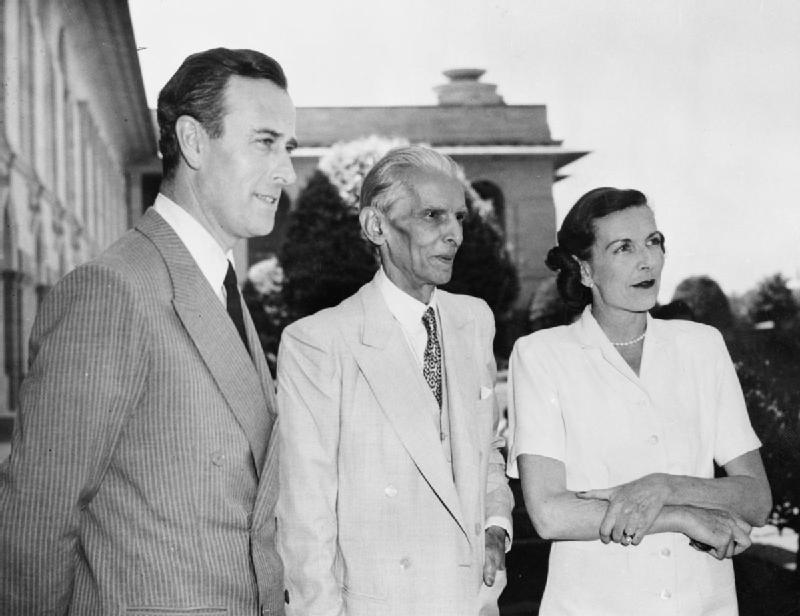
As a result Lord Mountbatten, Mohammad Ali Jinnah (who had fought and won a legal case on behalf of Khan of Kallat the ruler of Balochistan) and the Khan of Kallat met several times. When everything else failed, all kinds of bribes, allurements and threats were offered to the Khan of Kallat who refused to be ‘bought’. Finally, even Jinnah accepted the status of Balochistan as an independent country – separate from India and Pakistan. As a result, the Khan declared Balochistan’s independence as a sovereign nation on August 11, 1947.
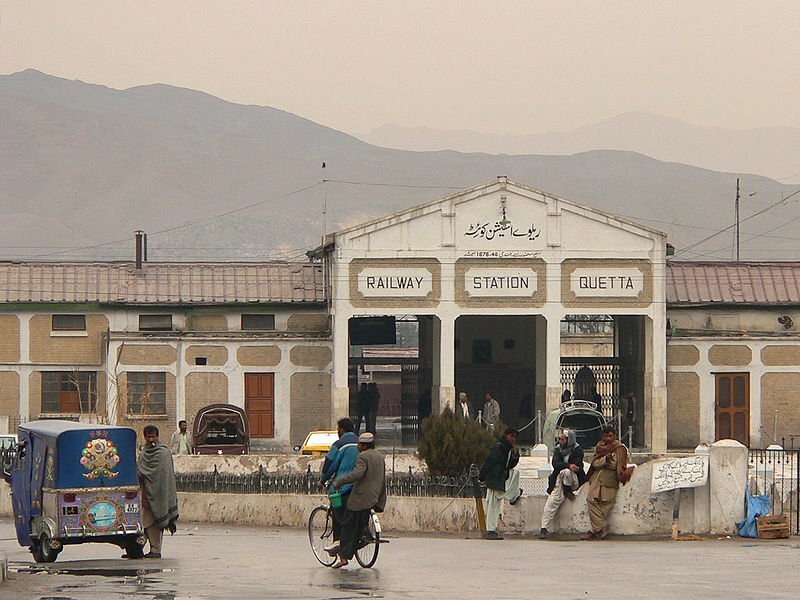
The Khan categorically wanted “complete Independence and Balochistan’s Unity” and vowed to “continue the struggle” till these conditions were met and there was “no interference” in internal affairs. Further, the Khan chose the word ‘Shah’ — preferred to be a servant instead of being the King of the Baloch people. Immediately after his address the Balochi National flag– with Red (“Sword or Jihad” sign of revolution) and green (the holy book “Quran” peace) was unfurled.
However as part of the understanding:
- Pakistan would accept Kallat as an independent state
- provide mutual security in case of foreign invasion;
- both will refrain from interference in each other’s internal affairs and settle all disputes amicably;
The Khan was willing to accept Pakistan as a friendly Islamic nation and discuss a common on defence, foreign affairs and communications. These were to be finalized at a separate meeting at Karachi at an early date. However, Jinnah turned back on his words and instead of recognizing Kallat as an “Independent and a Sovereign State” wanted the Khan to sign the same instrument of accession signed by the other states which joined Pakistan. This was a clear volte-face…
Also when the Khan went to Karachi, Pakistan to discuss details – Jinnah did not meet him and simply conveyed that he had no alternative but to accede to Pakistan. The Khan refused to accept the deal and returned – using the plea that as per the tribal customs he had to seek the consent of his people before concluding a deal.
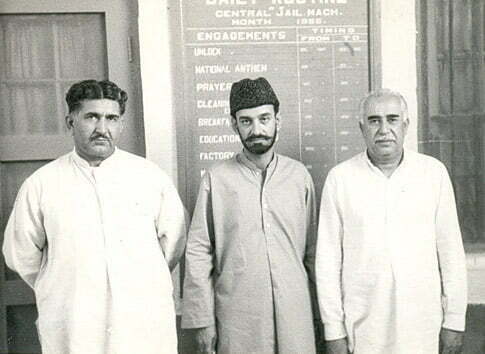
The issue of accession with Pakistan came up for hearing in the lower house of the Balochi Parliament on 12 December 1947. Speaking on the occasion Mir Ghaus Bakhsh Bizenjo — a prominent Baloch politician known as “Baba i Balochistan” or “The Father of Balochistan” said, “if the mere fact that we are Muslims required us to amalgamate with Pakistan, then Afghanistan and Iran should also be amalgamated with Pakistan… They say we Baloch can’t defend ourselves in the atomic age. Well, are Afghanistan, Iran and even Pakistan capable of defending themselves against the superpowers? If we cannot defend ourselves, a lot of others cannot do so either.”
“They say we must join Pakistan for economic reasons. Yet we have minerals, we have petroleum and we have ports. The question is what would Pakistan be without us? … This means signing the death warrant for 15 million Baloch in Asia. We cannot be guilty of this major crime to humiliate the Baloch nation through a merger with a non-Baloch nation” he added. This stand was ratified by the Upper house which met on 4 January 1948 to discuss the merger with Pakistan.
Balochistan’s biggest problem is the mess that Indian and Pakistani political leaders of all shades and colours have created.
Let’s look at things in perspective:
February 1948:: “I advise you to join Pakistan without further delay…and let me have your final reply which you promised to do after your stay with me in Karachi when we fully discussed the whole question in all its aspects,” Jinnah wrote to the Khan of Kallat.
27 March 1948 All India Radio broadcast a statement by VP Menon which stated that the Khan had sent an ambassador to India to merge Kallat with India. By this time Pakistan Army starts advancing into Pasni, Jiwani and Turbat in coastal Balochistan on March 26, 1948, and Kallat on April 1, 1948.
30 March 1948: Indian Prime Minister Nehru apologized for the false news in a speech before the parliament. But by then the damage was already done. The Khan of Kallat had been silenced and Balochistan had been captured by force. Jinnah accepted Balochistan’s accession under the shadow of the gun.
The Balochistan Assembly had out rightly rejected any change in the independence of Balochistan under any circumstances and even the Khan was not allowed to sign any document at gun-point but who cares for regalities when Pakistan held Balochistan’s neck in its hands.
Can a nation born three days after another (Pakistan became independent on August 14) legally claim the former to be a part of it? In simple language can a child who does not have a backdated legal status adopt another child born three days before it was born?
As a result, the sovereign Baloch state was short-lived and the flag of Balochistan atop its embassy in Karachi – where its ambassador to Pakistan lived — lasted only 227 days.
(To be continued)

